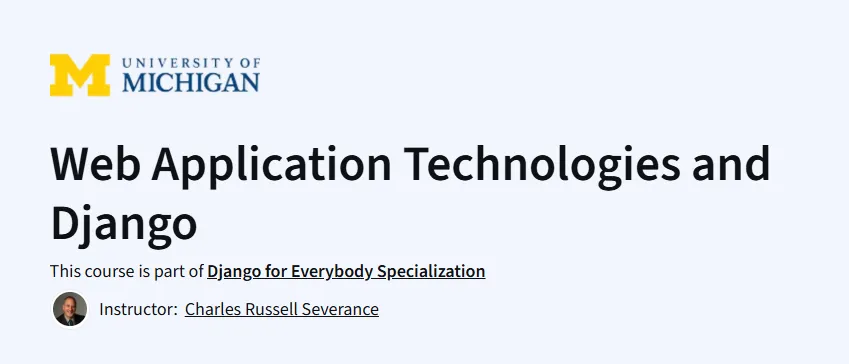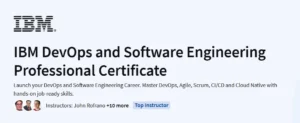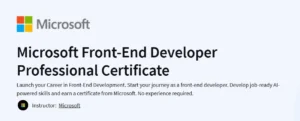What will you learn in Web Application Technologies and Django Course
- Explain the basics of HTTP and how the request–response cycle works.
- Install and deploy a simple Django application on a cloud service.
- Build and style basic web pages using HTML and CSS within a Django project.
- Model data and perform CRUD operations through Django’s ORM and SQL.
Program Overview
Module 1: Introduction to Dynamic Web Content
⌛ 3 hours
• Topics: HTTP methods (GET, POST, Redirect), HTML fundamentals, server–client interaction.
• Hands-on: Build a simple HTML page served by Django, examine HTTP headers.
Module 2: Setting Up Django Projects
⌛ 4 hours
• Topics: Virtual environments, Django project/app structure, URL routing, view functions.
• Hands-on: Initialize a Django project, map URLs to views, render basic templates.
Module 3: Templates, Static Files & Styling
⌛ 4 hours
• Topics: Django template language, static file handling, integrating CSS, template inheritance.
• Hands-on: Create reusable templates, include and version static assets, style pages.
Module 4: Data Models & the ORM
⌛ 4 hours
• Topics: Defining models, migrations, model relationships (one-to-many, many-to-many), querying.
• Hands-on: Design a data schema, run migrations, perform CRUD operations via the Django shell.
Module 5: Deployment & Best Practices
⌛ 5 hours
• Topics: PythonAnywhere deployment, configuration settings, debugging, security basics, MVC in practice.
• Hands-on: Deploy your app to PythonAnywhere, test it live, implement basic security headers.
Get certificate
Job Outlook
• Strong demand for full-stack and back-end developers skilled in Django and Python.
• Roles such as Django Developer, Web Application Engineer, and Backend Engineer rely on these skills.
• Opportunities in startups, tech companies, and enterprises building data-driven web platforms.
• Mastery of deployment and web protocols enhances prospects in DevOps and site reliability engineering.
Specification: Web Application Technologies and Django Course
|
FAQs
- Basic Python and HTML knowledge recommended.
- Focuses on Django fundamentals, HTTP, MVC, and deployment.
- Hands-on exercises help build and deploy web applications.
- Ideal for aspiring back-end or full-stack developers.
- Prepares learners for professional Django development workflows.
- Covers HTTP methods, request–response cycles, and URL routing.
- Teaches templates, static files, and CSS integration in Django.
- Includes data modeling and CRUD operations via Django ORM.
- Hands-on exercises to create reusable templates and styled pages.
- Prepares learners for real-world web application development.
- Covers deployment on PythonAnywhere cloud service.
- Teaches configuration, debugging, and basic security practices.
- Includes live testing and implementation of security headers.
- Prepares learners for DevOps or backend roles.
- Enhances employability in startups and tech enterprises.
- Duration: approximately 20 hours, divided into 5 modules.
- Modules cover dynamic content, project setup, templates, ORM, and deployment.
- Self-paced learning allows flexible schedules.
- Hands-on exercises reinforce each concept with real project workflows.
- Suitable for learners seeking structured Django and web development training.
- Learn MVC (Model-View-Controller) architecture principles.
- Create and manage models, migrations, and relationships (one-to-many, many-to-many).
- Perform CRUD operations and query data using Django ORM.
- Hands-on projects simulate professional development scenarios.
- Skills directly transferable to backend development and full-stack projects.





